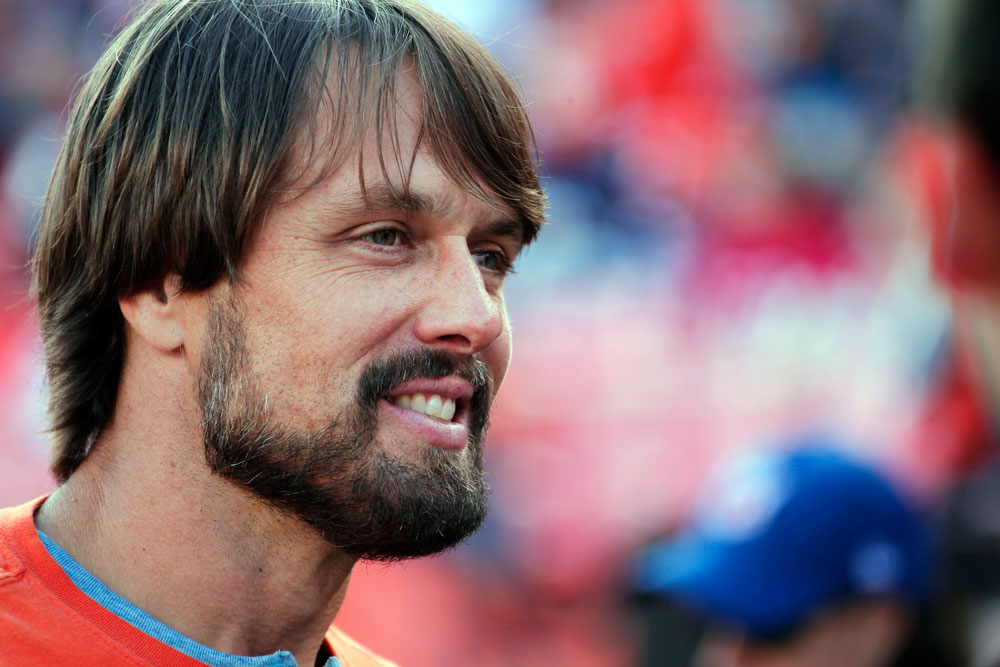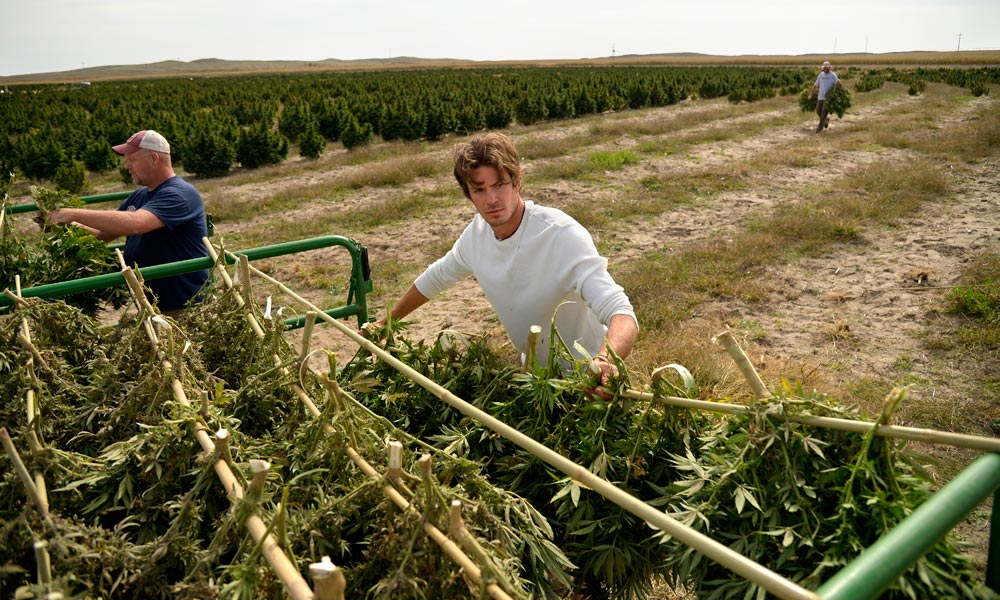Former Chicago Bears quarterback Jim McMahon calls himself “old school,” including his use of marijuana both during and after his career.
Yet McMahon’s stab at self-medicating could be ahead of its time. Researchers at Johns Hopkins plan to test whether a compound found in hemp — and its notorious cousin, marijuana — proves as effective in treating brain injuries as testimonials claim.
Some former players believe cannabidiol, or CBD, could help millions who suffer brain injuries each year, including chronic traumatic encephalopathy, a degenerative disease caused by repeated concussions and found in many former NFL players whose brains have been autopsied.
“I don’t think any of us regret what we did,” said Jake Plummer, a former Denver Bronco who played 10 seasons before retiring in 2007. “But there’s no question it comes at a real cost.”

Along with a handful of other retired players, Plummer felt strongly enough about the benefits of using CBD to appear in a public-service campaign titled “When the Bright Lights Fade.” It was sponsored by Realm of Caring, a nonprofit research organization based in Colorado Springs; and CW Botanicals, a dietary supplements company specializing in hemp products. It was released March 9 as part of National Brain Injury Awareness month with the goal of raising $100,000 to begin the Johns Hopkins study.
“I’ve had friends, guys I played alongside, whose mood changed from night to day. I know others who’ve replaced hellacious amounts of painkillers with CBD … and I hope this gets even more guys involved,” Plummer said. “The bigger the number, the better chance we have to get in front of (NFL commissioner) Roger Goodell and say, ‘You need to fund this.’ Not just for football players, but for the millions of others it could help.”
Because of a lack of research and varying federal and state regulations, the science and the law on CBD are far from settled. Major medical organizations have not supported marijuana to treat concussions, but many also say what the U.S. government patent on cannabinoids, including CBD, states: They act as “neuroprotectants” and have shown to be effective at limiting damage in cases of stroke or trauma and to treat degenerative diseases.
CBD resources
Game of Pain, a special report: Pushing for research on CBD’s benefits to NFL players
NEW: Get podcasts of The Cannabist Show.
Subscribe to our newsletter here.
Watch The Cannabist Show.
Versions of the CBD compound are available in some stores and online in creams, pills and oils. Some claim to be rich in CBD, with little or no THC (tetrahydrocannabinol), the psychoactive agent that produces a “high.” At least one manufacturer says its CBD product won’t trip a positive NFL drug test. According to the Food and Drug Administration, none are approved for the “diagnosis, cure, mitigation, treatment, or prevention of any disease.”
But in the last three years, encouraged by a CNN documentary on medical marijuana, thousands of parents whose children’s diagnoses range from autism to epilepsy mounted a Facebook campaign to sing its praises. They were soon joined by adults suffering from cancer or Parkinson’s disease. Many reported better pain management, impactful mood changes and significant decreases in seizures. Some families even relocated to Colorado to use CBD legally.
“Imagine if we’d suddenly found a plant extract in the Amazon that was as effective as CBD seems to be … and it was non-psychoactive, non-addictive and non-toxic, and had none of the stigma attached to it that marijuana does. We’d be all over it,” said Joel Stanley, co-founder of CW Botanicals and the eldest of six brothers working in the family’s medical marijuana business in Colorado. “We think we already have it.”
They began growing medical marijuana in 2009 and soon after produced a strain they called “Hippie’s Disappointment,” because it was high in CBD but low in THC. There was no market for it until 2012, when Paige Figi, whose 5-year-old daughter Charlotte suffered from intractable epilepsy, came searching for CBD-rich oil. Soon after using it, according to her parents. Charlotte’s seizures dropped from hundreds per day to almost none. The Stanleys, who said their waiting list for treatment once numbered 12,000 families, renamed the strain Charlotte’s Web.
“I can’t think of a better, safer thing to look at helping players dealing with a range of injuries and pain,” Stanley said. “They’re already pumping dangerous pills into these guys like it’s candy.”

McMahon, 56, has been diagnosed with early onset dementia and struggles with many of the attendant symptoms: depression, memory loss, vision and speech impairment and severe headaches. He says medical marijuana — he still prefers a high THC strain — helped him kick a 100-Percocet-a-month habit to cope with the lingering pain in his shoulders, neck and arms after a 15-year NFL career.
At a “Cannabis and Athletics” panel late last month, McMahon said he smoked marijuana with his Super Bowl-winning teammates often enough that coach Mike Ditka referred to the group as “You pot smokers.”
“We’d say, ‘It’s better than being drunk out here,” McMahon told the Fort Worth (Texas) Star-Telegram. “We’re still functioning.'”
Though there are no reliable surveys, many NFL players have estimated half the players or more used marijuana, including many more interested in pain management than the buzz.
“Safety is not just while you’re playing, it’s what happens after you walk away from the game, too,” said Baltimore Ravens tackle Eugene Monroe, one of the few active players taking part in the fundraising effort.
Monroe does not use CBD. He got interested in the research after seeing the CNN documentary and befriending a doctor whose autistic child had frequent seizures. Conversations with fellow players have heightened that interest.
“I saw where commissioner Goodell said the NFL would consider it, if the science is there to back it up,” Monroe said. “Well, here’s their chance to get involved. Let’s take a look at whether and how this can benefit our players. We’re talking about funding medical research, not about smoking pot.”
Cannabist Show: What’s the difference between CBD extracted from U.S.-grown cannabis vs. China?
